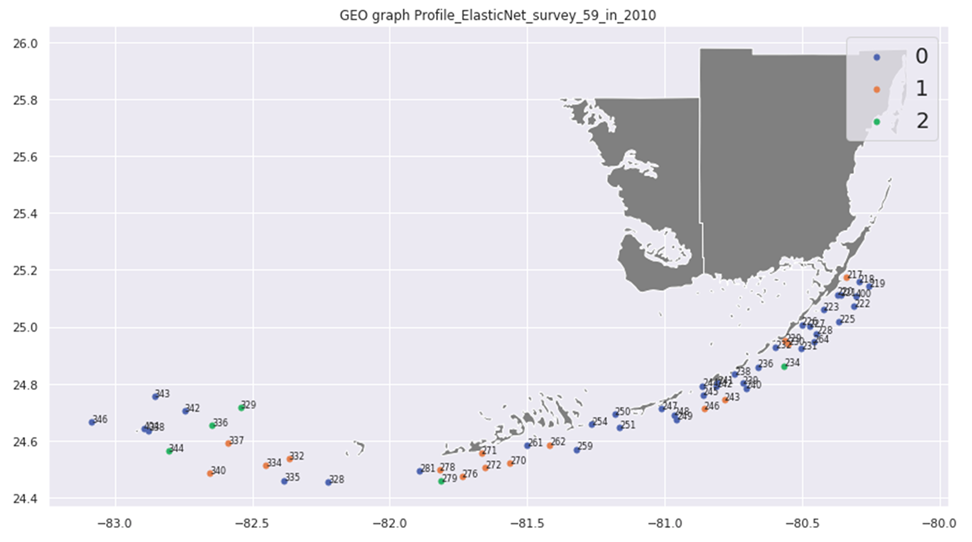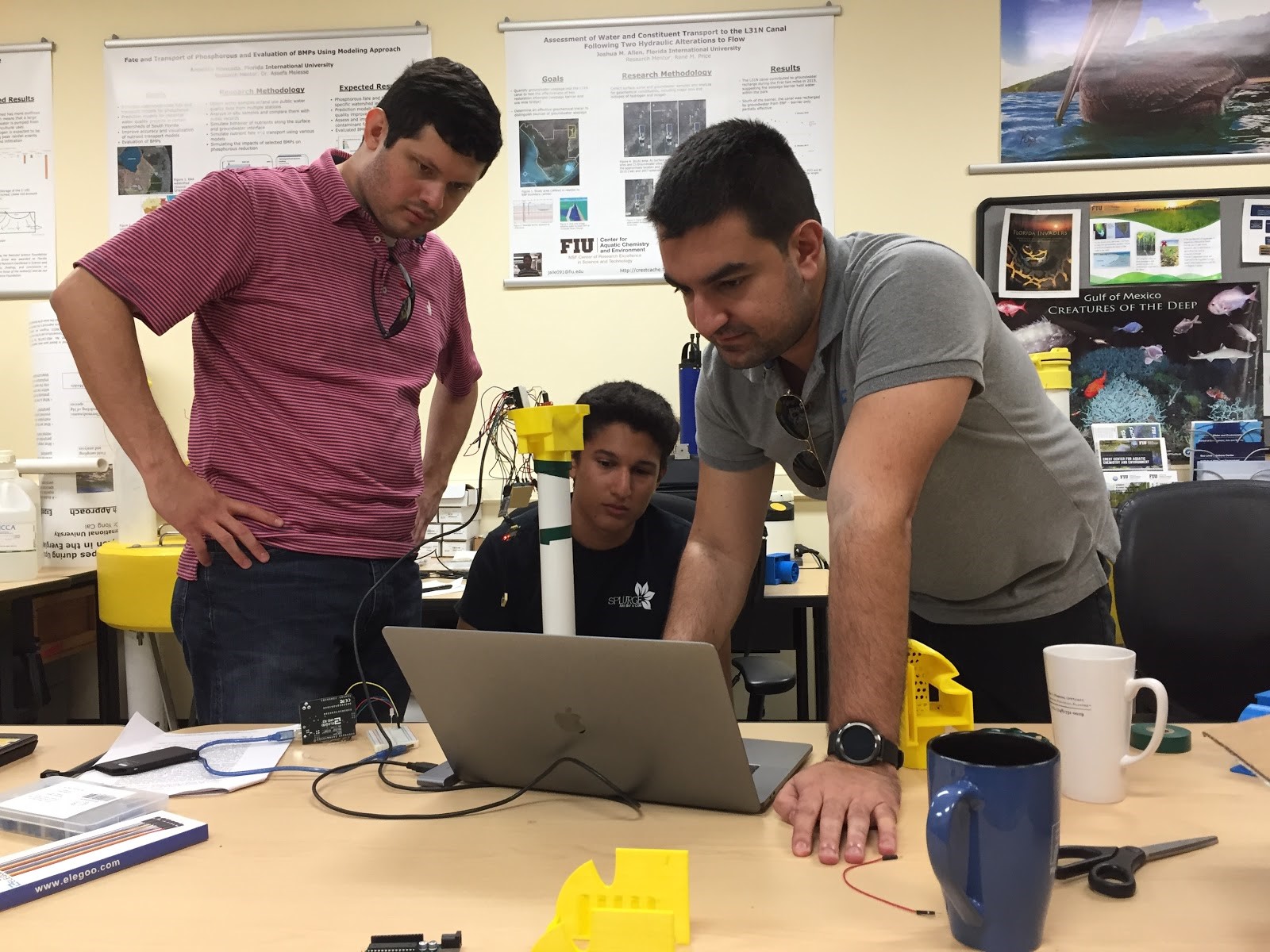The Florida Keys’ aquatic ecosystems, like many in South Florida, are complex and fragile systems susceptible to small changes. A disturbance such as algae growth can cause drastic effects and upset the balance. For those who study and monitor these areas, it is critical to understand precisely how and when these slight changes can occur, and what we can do to prevent the most serious impacts.
Researchers at Florida International University have been collecting long-term aquatic data in the Florida Keys for over 25 years. Alejandro Torres, a graduate fellow with the NSF CREST Center for Aquatic Chemistry and Environment (CAChE) at FIU, is using this large dataset for his research in computer science. Through machine learning, Torres is developing a program to scan the 25-year dataset in search of correlations for certain conditions. The ultimate goal is to create a system that can be used in future applications for forecasting events, such as the harmful algal blooms that can have devastating impacts on wildlife and local communities.
By analyzing large datasets such as these, machine learning programs can identify correlations and create profiles for potentially hazardous events. This could allow researchers to predict and quickly respond to worrying conditions in the future.
The NSF CREST Center for Aquatic Chemistry and Environment (CAChE) is housed within the Institute of Environment, a Preeminent Program at Florida International University.

